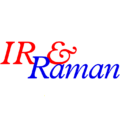Practical Vibrational Spectroscopy - Topics
The course will cover the following topics:
Data Collection
Make sure the instrument is performing properly
How the parameters you choose impact the spectrum
Collection modes
Measurement Effects
Spectral shifts introduced on vignetting (changing the beam diameter or shape)
Function of J-stop (or spectrometer aperture)
The effect of atmospheric water vapor and carbon dioxide
How to select the correct spectral resolution for the sample and experiment
Spurious spectral bands
Transmission spectroscopy
Liquid cells – why and how to use them
The effect of scattering, thick samples, temperature changes and air bubbles on solution spectra
Interference fringes
Artifacts seen on spectral subtraction
Reflection spectroscopy including ATR, Diffuse Reflection and Reflection Absorption
ATR elements, Samples and Critical Angle
Effect of poor contact on internal reflection elements
Not fully covering the beam in an internal reflection element
Diffuse reflection correct procedures (including different types of sampling accessories)
Band distortions from all types of reflection spectra
The effect of front surface reflection on diffuse reflection spectra
Data Processing
Searching
How and Why
Effects of data collection on search results
Assigning identification based on first hit
Baseline correction
Spectral Subtraction
Further processing
All six major FT-IR vendors will participate and each has agreed to provide an instrument and an applications scientist who will run the instrument. This will provide an opportunity for students to see the impact of the theory on an actual data collection situation. For data processing, we anticipate using a third party processing program, Peaks Spectroscopy, that has all the functionality of vendor software but the advantage of opening any type of data file for analysis. We will be making use of the 30-day demo license of this software.

